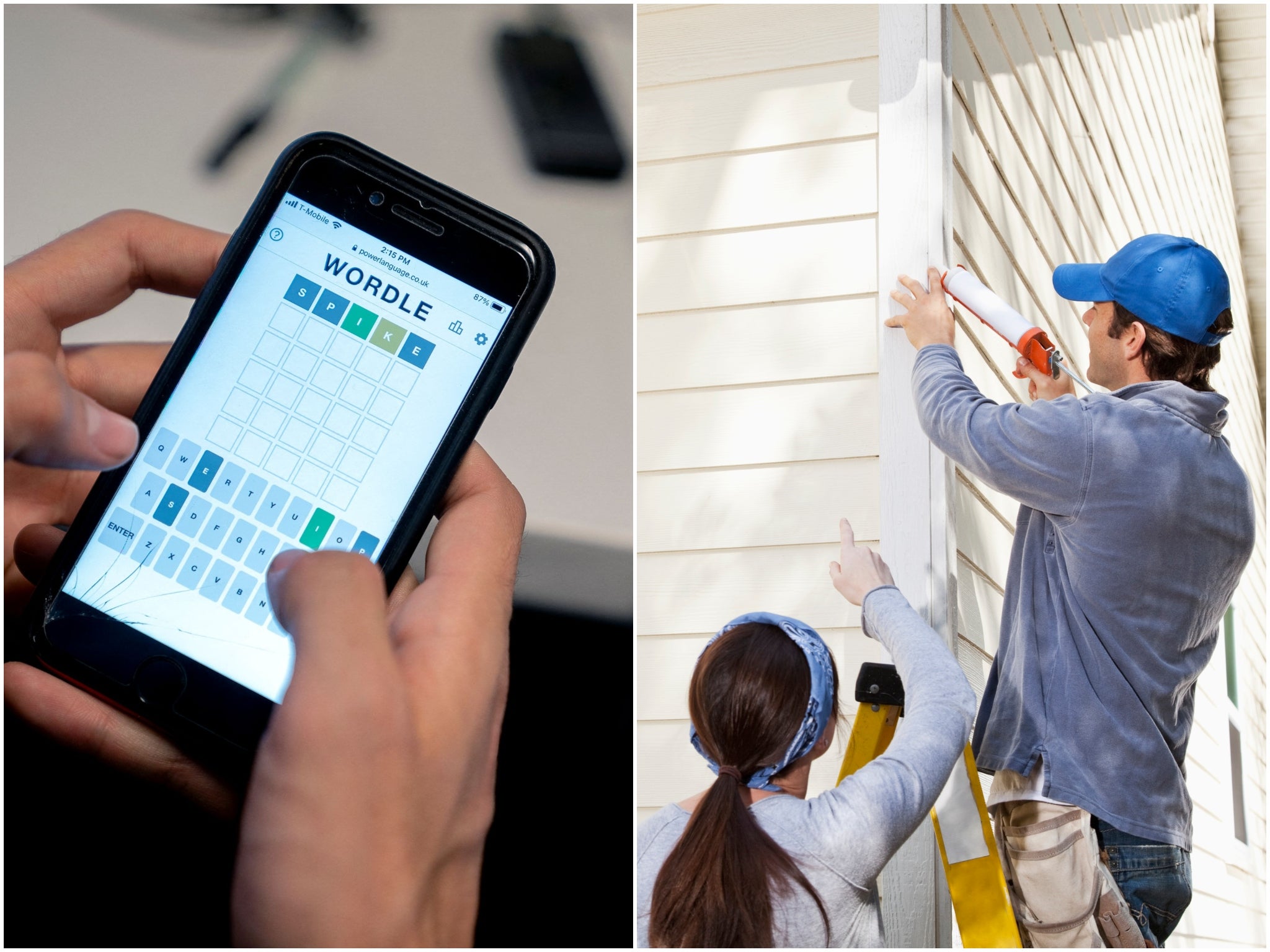How Wordle exposed a class divide among the game’s users
Wordle 242 users struggled to understand the meaning of one answer

Your support helps us to tell the story
From reproductive rights to climate change to Big Tech, The Independent is on the ground when the story is developing. Whether it's investigating the financials of Elon Musk's pro-Trump PAC or producing our latest documentary, 'The A Word', which shines a light on the American women fighting for reproductive rights, we know how important it is to parse out the facts from the messaging.
At such a critical moment in US history, we need reporters on the ground. Your donation allows us to keep sending journalists to speak to both sides of the story.
The Independent is trusted by Americans across the entire political spectrum. And unlike many other quality news outlets, we choose not to lock Americans out of our reporting and analysis with paywalls. We believe quality journalism should be available to everyone, paid for by those who can afford it.
Your support makes all the difference.Wordle. Whether you love it or you hate it, you can guarantee your Twitter feed will be filled with those green and yellow squares each morning as players share their results.
The game, which ballooned in popularity at the start of the new year, sees players vie to guess the five-letter word of the day in six attempts or fewer. It was created by software engineer Josh Wardle as a gift for his partner and was recently acquired by The New York Times for a seven-figure sum.
But since its move over to the publisher’s platform, the game has experienced a few teething issues, with users lamenting that it’s “too hard” now, and those playing Wordle 241 even realising that there were two different possible answers.
Yet, it was Wednesday’s wordle answer that has caused the most head-scratching from social media. The answer, caulk, resulted with many Wordle fans struggling to guess it, even Googling what the word meant after playing the game. So much so that “caulk meaning” had jumped to the top of Google’s trending topics by lunchtime.
Many people were complaining about not knowing the word, with one user saying “that’s not a word” and another added: “Whoever was responsible for today’s Wordle is sick and twisted. You will not see the pearly gates.”
On the contrary, caulk is a word, and is much more common than you think.
Caulk is the name of the white chalky substance used, much like polyfiller, for filling in gaps in building work and will be familiar to the likes of builders, handymen and anyone who has ever watched an episode of Changing Rooms or does their own DIY.
While many of the words have been trickier to get (cynic) or esoteric (agora), Wednesday’s word is the first to have exposed the potential demographic of those who play the game.
“Today’s Wordle was a win for the working class,” wrote one Twitter user. “Not surprising to see the London liberal metropolitan elite failing to get it.”
At the time of writing, the tweet had been liked over 1,100 times. “No doubt if the word was ‘hegemony’ they would get it in three,” he added.
Another user called Bethany said: “If you don’t guess today’s Wordle you are definitely upper middle class.”
A third added that tweets about the Wordle “uncovered some fascinating class dynamics”.
Who knew caulk could be so contentious? Another Twitter user said they guessed the answer after just three attempts, because it was the title of a New Girl episode in which two of the central characters with simmering sexual tension visit a hardware store to buy, you guessed it, caulk.
Of course, with most of us renting for the foreseeable future, perhaps we’re less inclined to do our own DIY and so our collective need for caulk isn’t what it once was.
Whatever the reason, if we can glean one thing from the ‘caulk’ Wordle it’s that players will now know exactly what to ask for should their bathroom tiles crack, instead of having to wait for the landlord.
Join our commenting forum
Join thought-provoking conversations, follow other Independent readers and see their replies
Comments